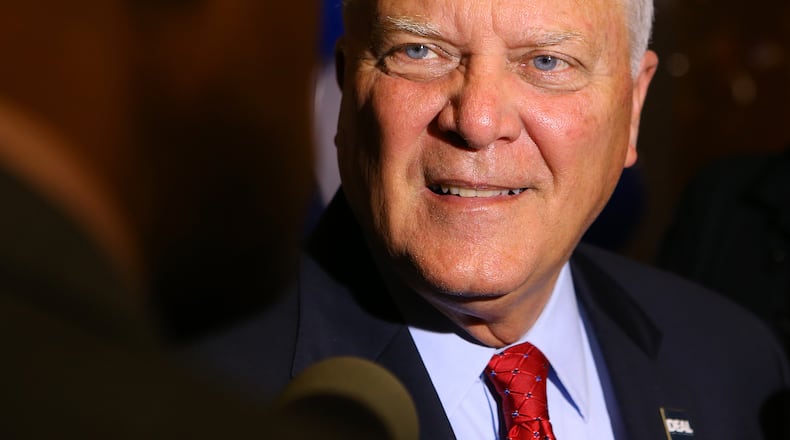So far as we know, there hasn't been an official response to last week's warning shot from the Obama administration over Georgia's refusal to process food stamp applications for new Syrian refugees. But Gov. Nathan Deal on Wednesday delivered an unofficial one.
"The state is willing to let the federal government run the program if they choose to do so. We’ve told them that in the past," he said. "We think that this is something that’s within the prerogative of the state. If they expect us to administer it, we ought to have some input into the process."
Deal joined more than half the nation's governors in opposing the Obama administration's resettlement program after the terror attacks in Paris, and the executive order he issued on Nov. 16 instructs state agencies to halt any involvement in resettling new Syrian refugees.
The Georgia Department of Human Services, which administers the benefits, soon issued a memorandum ordering its employees not to process the food stamp applications of Syrian refugees who are resettled in Georgia after Nov. 16.
That led to a warning shot last week by the federal Supplemental Nutrition Assistance Program, which oversees the national program, urging the state to "rescind this memorandum and cease this practice immediately" or risk violating the Food and Nutrition Act of 2008.
“As long as an applicant submits a SNAP application that includes the applicant’s name, address, and signature, the state agency must accept and process the application to be in compliance with federal law,” the program's administrator wrote.
Deal, when asked about the likelihood of a legal showdown over his refugee policy, was curt.
“We will defend them.”
A few hours later, Deal elaborated on why he's striking a hard line on the debate.
"This is a matter that needs to be clarified. When you have a majority of the American public having grave concerns about a specific group of refugees, the federal government owes it to the people of the country and the people of Georgia to give us more assurances than they have given us to this point."
He added:
"When they don't tell you who they are sending, they don't tell you where they are sending them, and they don't tell you where they are, it's more difficult for the state to be prepared. They expect the states to simply close their eyes and pretend there's no problem. I'm not satisfied with that."
About the Author
The Latest
Featured




